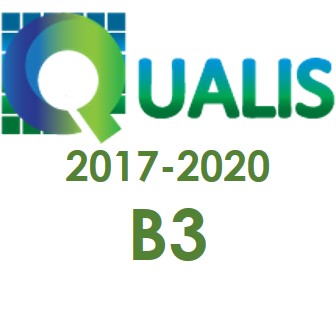O GÊNERO “DEBATE NÃO MEDIADO” E A POLARIZAÇÃO POLÍTICA
UMA ANÁLISE BAKHTINIANA
DOI:
https://doi.org/10.22481/folio.v14i1.9980Keywords:
Debate; Democracy; Discourse genre; Polarization.Abstract
This paper seeks to analyze the argumentative interactions of two debaters in a debate recorded on video and published on YouTube by the Spotniks channel, entitled “He suspects Covid-19 vaccines. She is a scientist from Butantan. We put the two of them to talk”, evidencing the functioning of the discursive genre “unmediated debate” (BAKHTIN, 2016) and its implications for the argumentative dynamics in a controversial context, under the prism of Dialogic Discourse Analysis (BAKHTIN, 2015; VOESE, 2021; VOLOCHINOV, 2017) and contemporary sociology and political science (BAUMAN, 2003; DEMO, 2008). The relevance of this work is justified by the emergence of successive crises in the Brazilian democratic environment, contaminated both in the dimension of institutional policy and of public debate, mainly due to the intensification of the processes of generalized disinformation (fake news) and political polarization, especially in virtual environments (MACHADO; MISKOLCI, 2019). Regarding the methodology, we opted for the transcription and subsequent analysis of an excerpt from the debate in two dimensions: in the textuality of the discursive utterances, commented point by point, and in the macrostructural dimension of the discursive interaction, contextualized to the problematic contours that characterize the national public debate. The analysis points out the strength of the “unmediated debate” genre and the productivity of the argumentative interaction analyzed, when circumscribed by the striking features of the genre in question.
Downloads
References
AMOSSY, Ruth. “Uma guerra civil” na França: a polêmica pública após os atentados de 2015. Tradução de Angela Correa. In: PIRIS, E.; AZEVEDO, I. (org.). Discurso e Argumentação: fotografias interdisciplinares. Coimbra: Grácio, 2018. p. 17-40. Disponível em: https://kutt.it/3Ibtop .
BAKHTIN, Mikhail. Teoria do romance I: a estilística. Tradução, prefácio, notas e glossário de Paulo Bezerra; organização da edição russa de Serguei Botcharov e Vadim Kójinov. São Paulo: Editora 34, 2015. 256p.
BAKHTIN, Mikhail. Os gêneros do discurso. Paulo Bezerra (Organização, Tradução, Posfácio e Notas); Notas da edição russa: Seguei Botcharov. São Paulo: Editora 34, 2016. 164p.
BAUMAN, Zygmunt. Modernidade Líquida. Rio de Janeiro: Zahar, 2003.
BOBBIO, Norberto. O futuro da democracia: uma defesa das regras do jogo. 6ª ed. Rio de Janeiro: Paz e Terra, 1997
BRASIL. Constituição (1988). Constituição da República Federativa do Brasil: promulgada em 5 de outubro de 1988. Vade Mecum. Saraiva. 5ª ed. Atualizada e ampliada. São Paulo, 2008.
DEMO, Pedro. Pobreza Política. São Paulo: Editores Associados, 2008.
FERRARO, Alceu Ravanello. Analfabetismo e níveis de Letramento no Brasil: o que dizem os censos? Educação e Sociedade, Campinas, v. 23, n. 81, p. 21- 47, dez. 2002.
HOLANDA, Sérgio B. Raízes do Brasil. 26ª Edição. São Paulo: Companhia das Letras, 1995.
MACHADO, Jorge Alberto Silva; MISKOLCI, Richard. Das jornadas de junho à cruzada moral: o papel das redes sociais na polarização política brasileira. Sociologia & Antropologia, Rio de Janeiro, v. 9, n. 3, p. 945-970, 2019. Disponível em: < https://doi.org/10.1590/2238-38752019v9310 > DOI: 10.1590/2238-38752019v9310.
SPOTNIKS. Ele suspeita das vacinas da Covid-19. Ela é cientista do Butantan. Colocamos os dois pra conversar. Youtube, 24 de junho de 2021. Disponível em: https://youtu.be/L24UIaHb_8A
VOESE, Ingo. O discurso como martelo e superfície ou como (não) silenciar inquietações. Linguagem em (Dis)curso, [S.l.], v. 7, n. 2, p. p. 271-292, out. 2010. ISSN 1982-4017. Disponível em: <http://www.portaldeperiodicos.unisul.br/index.php/Linguagem_Discurso/article/view/365>. Acesso em: 24 jul. 2021.
VOLÓCHINOV, Valentin (Círculo de Bakhtin). Marxismo e filosofia da linguagem. Problemas fundamentais do método sociológico na ciência da linguagem. Tradução, notas e glossário de Sheila Grillo e Ekaterina Vólkova Américo. Ensaio introdutório de Sheila Grillo. São Paulo: Editora 34, 2017, 373p.
Downloads
Published
How to Cite
Issue
Section
License
Copyright (c) 2022 fólio - Revista de Letras

This work is licensed under a Creative Commons Attribution-NonCommercial 4.0 International License.












